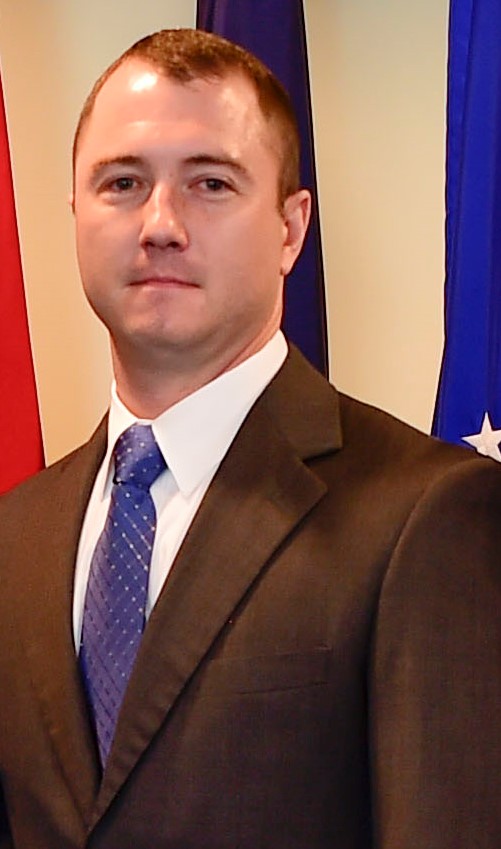Bachelor of Science with a Major in Political Science
The Bachelor of Science (B.S.) with a Major in Political Science at the University of West Georgia offers a course of study leading to an Undergraduate Degree in Political Science. This is our most popular degree program. For the B.S. degree students take one course in each of the four main areas of Political Science: American Government, Comparative Politics, International Relations, and Political Theory. Students complete the major with six additional courses in areas of their choosing. Students can select from the four fields above as well as courses in Public Administration, policy analysis, data analytics, and law. Students complete their coursework by taking a capstone seminar during their senior year.
For more information, please see the Academic Catalog. A program map, which provides a guide for students to plan their course of study, is available for download in the Courses tab below.
For the Bachelor of Science degree, the student chooses a career emphasis, such as public or nonprofit organizations, state and local government, international organizations, or foreign service, with statistics and writing as recommended tools.
For a minor in Political Science, the student must take fifteen hours of upper division (3000/4000) political science courses in which the student makes a "C" or better.
For law students in the professional preparation track, the department has developed a set of recommended courses that can fulfill requirements in the core, the major, or serve as electives.
For information about the courses available for Political Science in the Fall and Spring, view the Two Year Rotation Tentative Schedule.
The Senior Seminar (POLS 4984) is a capstone course that offers students a broad overview of the discipline of political science. The specific purpose of this course is to identify and to concentrate on remedying deficiencies in individual student programs of study. Senior seminars are offered in the Spring and Fall semesters.
Major Declaration Form
Career Opportunities
Link to Additional Career Information:
https://www.buzzfile.com/Major/Political-Science
External Resource
Program Location
Carrollton Campus
Method of Delivery
Coursework is available face to face, and 100% online; required orientation can be done on campus or virtually.
Accreditation
The University of West Georgia is accredited by The Southern Association of Colleges and Schools Commission on Colleges (SACSCOC).
Credit and transfer
Total semester hours required: 120
This program may be earned entirely online, entirely face-to-face, or anything in between.
Save money.
UWG is often ranked as one of the most affordable accredited university of its kind, regardless of the method of delivery chosen. In addition, online courses and programs can mean a cost-savings in many non-evident ways: No more high gas charges. No childcare needed. The flexibility can allow one to maintain a job while attending school. Regardless of state residency, out-of-state non-resident students are not charged non-resident tuition for online course credit hours.
Details
- Total tuition costs and fees may vary, depending on the instructional method of the courses in which the student chooses to enroll.
- The more courses a student takes in a single term, the more they will typically save in fees and total cost.
- Face-to-Face or partially online courses are charged at the general tuition rate and all mandatory campus fees, based on the student's residency (non-residents are charged at a higher rate).
- Fully or entirely online course tuition rates and fees my vary depending on the program. Students enrolled in exclusively online courses do not pay non-Resident rates.
- Together this means that GA residents pay about the same if they take all face-to-face or partially online courses as they do if they take only fully online courses exclusively; while non-residents save money by taking fully online courses.
- One word of caution: If a student takes a combination of face-to-face and online courses in a single term, they will pay both all mandatory campus fees and the higher eTuition rate.
- For the cost information, as well as payment deadlines, see the Student Accounts and Billing Services website
There are a variety of financial assistance options for students, including scholarships and work study programs. Visit the Office of Financial Aid's website for more information.
Downloads
Major Selects
Students are introduced to various qualitative and quantitative methods used in the social sciences. They learn how to find, evaluate and ethically use appropriate information to conduct political science research. They construct research questions and write research papers using case studies, comparative methods and statistics.
An analysis of the roles of the policy making processes, power, procedures, relationships, and history of American national governmental institutions.
This course is an introductory course that examines the role of gender in the field of political science. This course will explore gender oriented approaches to the range of subjects in political science (comparative politics, American politics, political theory, and international relations.)
Analysis of the role of the mass media in American politics, including the impact of media coverage on public and elite opinions and the interactions between the media and public institutions.
An analysis of diverse public policy issues, as well as the decision process leading to the formulation of government policy. An analysis of societal factors that influence policy, and the effect of government policy on society.
An introduction and survey of legal process in American society.
Comparative Politics is the study of the political forces, institutions, and practices of countries in order to describe, explain, predict political events.
This course explores the political systems of Western Europe. It investigates basic issues of political arrangements, political parties, and the challenges faced by each nation. It also explores the rise and expanding powers of the European Union. Topics will include government formation, the role of political parties, and how policy is made, among others. Countries will include Britain, France, and Germany, among others.
This is an analysis of the contemporary international system. The course will examine foreign policy decision-decision-making, the use of power, the causes of war, and the role of international law and organizations.
POLS 3601 Political Science Methods II Credits: 3.0 As a sequence of POLS 2601, this course focuses on quantitative research methods for political science. Students are introduced to quantitative data collection methods and basic statistical analyses. Lecture: 3.00 Lab: .00 College: College of Social Sciences Department: Political Science/Planning Pre-requisites: POLS 2601
A study of the role, functions, and organization of the U.S. Congress and state legislatures with special attention to the Georgia General Assembly. Theories of representation and legislative voting patterns are examined, and comparisons between the American political process and that of parliamentary systems made.
This course focuses not only upon the institutional and legal frameworks set out in the constitution regarding the Presidency, but also upon the historical, philosophical, psychological, and sociological aspects of the office. The American system of checks and balances is compared to that of parliamentary democracies.
This course examines the nature and development of public opinion in America and the interaction between public opinion and government. The influence of public opinion on government institutions and public policy formation in America and the impact of government upon citizens' attitudes and opinions are explored.
Students may receive academic credit for personal experience in the political process and/or public employment. Credit hours only apply toward electives.
An introductory examination of the characteristics of the public organization and its impact on society. Analysis of the theories of public administration, personnel issues, budgetary activities, legal dynamics, as well as historical development of the field are included.
An examination of the interactions between various levels of government, nonprofit and private organizations in the federal system.
A study of the equity and economic effects of government spending programs, taxes, and debt. The course is primarily applied microeconomics. Same as ECON 4440.
Politics of Big Tech will emphasize the development of national, international, and state/local policies that govern big tech firms, emphasizing the fragmentary nature of regulatory responses to large multinational retailers and media platforms alike. We will examine the ramifications of platform dominance and its impact on society, as well as the implications for democracy.
This course examines the health policy process at the national, state, and local levels, with a detailed look at the steps in the process, groups involved, and resultant policies. Through group exercises, each student will experience the policy process, gain an understanding of the dynamics of change, and develop the ability to form coherent policies.
Environmental Policy will emphasize the national and state policy making process, focusing on the dynamics of pluralist change, policy implementation and current environmental status.
Various changes in the management of public organizations are identified and analyzed. Includes the role of technology, modification of the relationship between public and private spheres, and current trends in the management of change and supervision of a diverse work force.
An in-depth study of the political process and administrative procedures used in American state and local governments to address social, economic and political issues. Comparative analysis of relevant actors and strategies across the states is incorporated.
This course is an introduction to Comparative Public Administration and Policy. Focusing primarily on democratic states, it explores recent innovation in public administration and policy evolution and transformation within the context of the modern welfare state. It examines the institutions and political setting in several countries, which will include both advanced industrial countries and developing nations, and addresses policy areas ranging from social welfare to environmental politics.
This course is designed to explore the theoretical principles and practical applications of management for charities and/or nonprofit organizations. The underlying thesis of this course is that by understanding fundamental principles such as developing effective mission and objectives statements, fundraising, marketing and accounting strategies, nonprofits can become more effective and responsive to their constituency's needs. The course will include a field research component.
Study of the constitutional divisions of power among the branches of the national government and between the national and state governments.
Study of the application and interpretation of the constitutional protections by the American courts.
This is an examination of the government and politics of Latin America. The course analyzes political culture and socialization, party and interest group activity, government structures and public policy formation, issues of political and economic development.
This course is an introduction to the history, political institutions, and policy of the European Union. In the past half-century, the EU has grown from a set of weak and poorly defined institutions with a limited policy domain and an emphasis on national sovereignty into an extensive political system with increasingly strong supranational actors influencing all aspects of political and economic life.
This course analyzes the politics of the United Kingdom, investigating the Norman roots of British politics. It focuses on the evolution and functioning of the current political system and the institutional structure of Britain. We discuss who has the power and how it is used. The course also addresses the interplay between a unitary state structure and regionalism in Scotland, Wales, Northern Ireland and England as well as cultural and political identity in those regions.
This course analyzes the concept of democracy and the process of democratization around the world. First, we will discuss the range of definitions of democracy, and some of the difficulties associated with the concept and its measure. Second, we will examine how key regime characteristics lead to different modes of democratic transitions, and we will identify the key determinants of democratic consolidation. Finally we will study the process of democratic erosion and breakdown through the experiences of Germany, Chile, Russia, and other cases around the world. At the end of the central problems that plague transition and consolidation processes, and synthesize the key findings and conclusions about democratization.
This is an introductory course designed to familiarize students with the body of international law, its applicability, and the existing organs or arbitration and adjudication. The course examines the role of international courts, laws of war and peace, human rights law, migration law and the role of the individual in international law.
This is an analysis of international organizations with an emphasis on the United Nations. The course examines the role of the UN in peacekeeping, collective security, economic development, and human rights.
This course analyzes the politics of international economic relations, investigating the roots and evolution of the international political economy since World War II, and focusing on the rise and implications of global economic governance and globalization. The course will address the interplay between politics and economics in a range of different issue areas, including the international financial system, international trade, and attempts at regional economic integration.
This course is designed as an upper division reading course in American foreign policy. This course will discuss the foreign policy process, a brief history of American foreign policy and its traditions, the inputs and outputs that make up foreign policy and a variety of approaches to understanding foreign policy. The goal of the course is to provide students with the theoretical and analytical tools needed to be intelligent consumers of foreign policy. The course will incorporate current events in American foreign policy as a means of demonstrating the academic concepts of the course in practice.
This course focuses on the legal institutions that constitute the European Union and the legal processes of those institutions. The course examines the body of law, both static and dynamic, on which these institutions rest and that have been produced by the institutions themselves. This law includes the several treaties that provide the legal basis of the EU; the body of statutory law enacted by the Parliament, the Council, and the Commission; and the judicial decisions adjudicated by the Court of Justice and the Court of First Instance; and finally, the administrative rulings issued by the European Ombudsman.
A critical reading of selected works by major ancient and medieval western political thinkers, e.g., Sophocles, Thucydides, Plato, Aristotle, Augustine, Aquinas, and Machievelli.
A critical reading of the major works which form the basis for political thinking in modern times. Authors include such thinkers as Hobbes, Rousseau, Marx, Hegel, and Nietzsche, exploring issues like freedom, family, community,order, and the modern state.
A critical reading of selected essays, speeches, debates, and literary works from America's great and unique political tradition. The course will focus on various major themes, for instance, commerce, freedom, justice, race, democracy, representation, community, or family life.
In-depth, individualized research on specific political problems and issues.
Specialized areas of analysis in a subfield of political science with the specific titles announced in the class schedule and entered on the students' transcripts. Students may repeat the course for credit as topics change.

Kathleen Barrett
Associate Professor & Associate MPA Director
Sheikh Tijan Drammeh
Senior Lecturer
Anthony Fleming
Associate Professor & Chair

Sooho Lee
Professor & Graduate Coordinator of Public Administration
Heather A. D. Mbaye, Ph.D.
Professor & Program Coordinator of Political Science
Dylan S. McLean, Ph.D.
Professor
Karen Owen, Ph.D.
Dean of University College and Honors College, Professor, and Director of the Thomas B. Murphy Center

Paul Rutledge, Ph.D.
Professor
Robert Schaefer
Professor of Political ScienceGuidelines for Admittance
Each UWG online degree program has specific requirements that you must meet in order to enroll.
- Complete online application. A one-time application fee of $40 is required.
- Official transcripts from all schools attended. Official transcripts are sent from a regionally or nationally accredited institution.
- Verify specific requirements associated with specific populations identified here: Freshman Adult Learners Transfer International Home School Joint / Dual Enrollment Transient Auditor Post-Baccalaureate Non-Degree Seeking Readmission
Program Specific Admittance Guidelines
Students must have cumulative GPA (including all transfer credit) of 2.0 at the time of the request to declare the major.
Admission Process Checklist
- Review Admission Requirements for the different programs and guides for specific populations (non-traditional, transfer, transient, home school, joint enrollment students, etc).
- Review important deadlines:
- Fall semester: June 1 (undergrads)
- Spring semester: November 15 (undergrads)
- Summer semester: May 15 (undergrads)
See program specific calendars here
- Complete online application
Undergraduate Admissions Guide
Undergraduate Application
Undergraduate International Application - Submit $40 non-refundable application fee
- Submit official documents
Request all official transcripts and test scores be sent directly to UWG from all colleges or universities attended. If a transcript is mailed to you, it cannot be treated as official if it has been opened. Save time by requesting transcripts be sent electronically.
Undergraduate & Graduate Applicants should send all official transcripts to:
Office of Undergraduate Admissions, Murphy Building
University of West Georgia
1601 Maple Street
Carrollton, GA 30118-4160 - Submit a Certificate of Immunization, if required. If you will not ever be traveling to a UWG campus or site, you may apply for an Immunization Exemption. Contact the Immunization Clerk with your request.
- Check the status of your application
Contact
Dr. Chapman Rackaway, Chair
jcrackawa@westga.edu
Specific dates for Admissions (Undergraduate only), Financial Aid, Fee Payments, Registration, Start/End of term, Final Exams, etc. are available in THE SCOOP.
- Students will demonstrate that they have developed an understanding of the constitutional, institutional, political and legal processes of the U.S. and Georgia.
- Students will demonstrate that they have developed an understanding of the interrelationship between American governmental institutions.
- Students will demonstrate that they have developed an understanding of the basic terminology of political science and U.S. politics.
